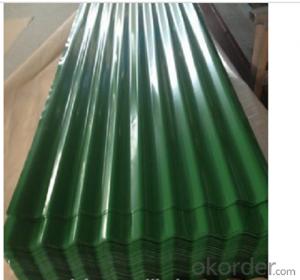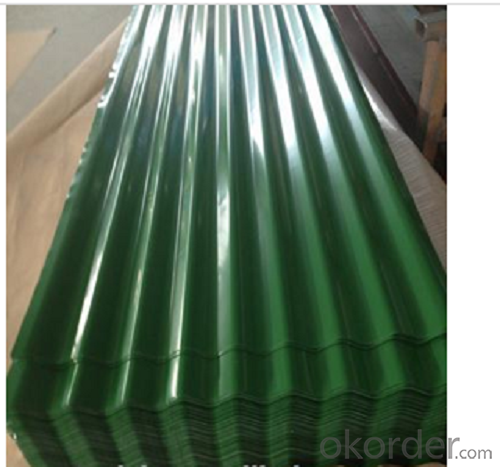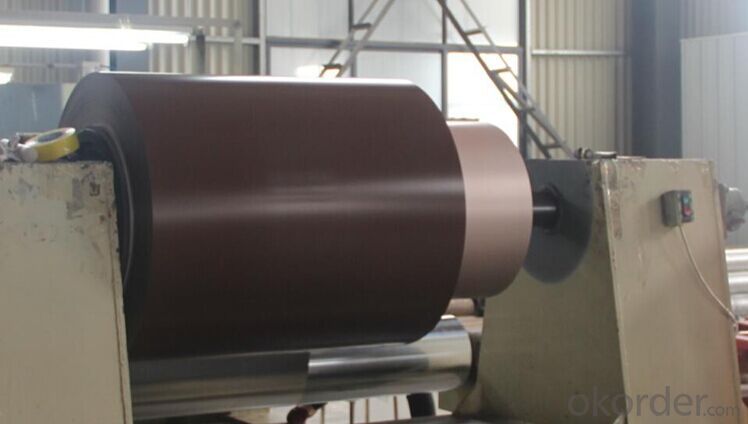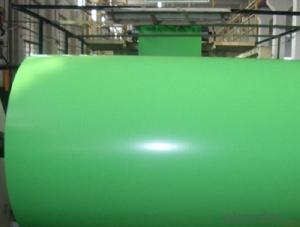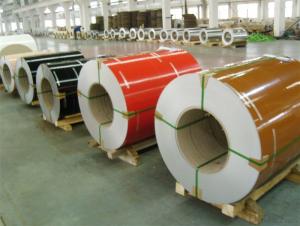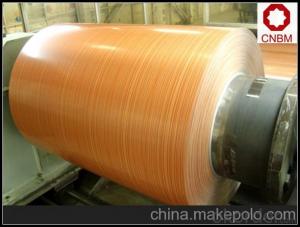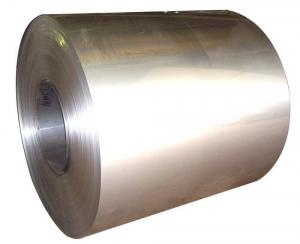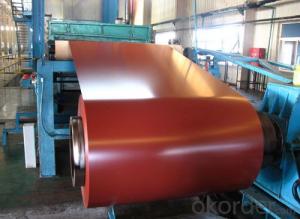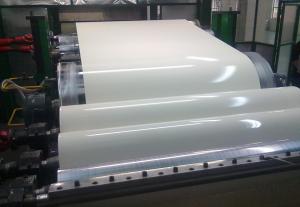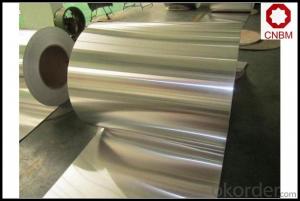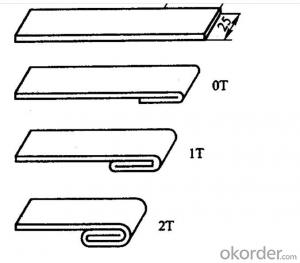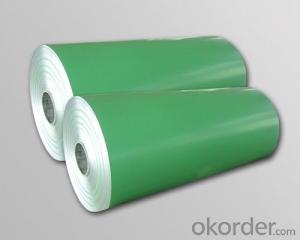Copper Aluminum Coils Lennox Aluminum Sheet for Roofing and Cladding System
- Loading Port:
- China main port
- Payment Terms:
- TT OR LC
- Min Order Qty:
- 10 m.t
- Supply Capability:
- 1000 m.t/month
OKorder Service Pledge
OKorder Financial Service
You Might Also Like
Specification
The Specification of Coated Aluminium Sheel:
Commodity | 1050 Aluminum Sheet / Plate |
Material | 1050,1060,1100,2A16(LY16),2A06(LY6),3003,3004,5052,5005,5083, 6061,7075,8011 |
Finish (Surface) | Hairline Finish,Mirror Finish,Oxidation Finish,PS Finish,Embossed Finish |
Thickness | 0.15mm~200mm |
Width | 10mm~2500mm |
Length | 2000mm~2500mm |
Aluminum Sheet can apply to Lighting,solar reflective film,building
appearance,interior decorating:Ceilings,walls, furniture,cabinets,elevators, signs,
nameplates,bags,automotive interior and exterior decoration Upholstery:Photo
Frame;household appliances:refrigerators,microwave ovens,audio equipment,etc.
aerospace and military aspects, such as China's large aircraft manufacturing,the
Shenzhou spacecraft series,satellite.the mechanical parts processing,mold
making,chemical/thermal insulation pipes coated.
The Main Features of Aluminium Coated Sheet:
1.High temperature resistant
2.Weathering resistance
3.Scrubbing resistant
4.Sound insulation
The Images of Aluminium Coated Coil:

FAQ:
Q: Can you provide free samples?
A: Yes, free samples will be sent to you on freight at destination.
Q: Can I get your latest catalogue?
A: Yes, it will be sent to you in no time.
Q: What is the MOQ?
A: 5 tons
Q: What are your payment terms?
A: We accept L/C,T/T, West Union,etc.
- Q: Can aluminum coils be used in cryogenic applications?
- Yes, aluminum coils can be used in cryogenic applications. Aluminum is known for its excellent thermal conductivity, which makes it a suitable material for transferring heat in low-temperature environments. Additionally, aluminum has a low coefficient of thermal expansion, meaning it can withstand the extreme temperature changes that occur in cryogenic applications without experiencing significant dimensional changes. However, it is worth noting that aluminum coils may need to be specially designed or treated to ensure they can withstand the extremely low temperatures and avoid any potential issues such as brittleness or embrittlement.
- Q: What are the different coil cutting options for aluminum coils?
- There are several coil cutting options available for aluminum coils, depending on the specific needs and requirements of the project. Some of the common coil cutting options for aluminum coils include: 1. Shearing: Shearing is a process that involves cutting aluminum coils using a shear blade. This method is used for straight cuts and is suitable for thinner gauges of aluminum coils. 2. Slitting: Slitting is a process that involves cutting aluminum coils into narrower strips. The coil is passed through a series of rotating circular blades, which cut it into multiple smaller coils of desired widths. Slitting is commonly used to produce coils for various applications such as roofing, automotive, and packaging industries. 3. Cut-to-Length: In this method, the aluminum coil is cut into individual sheets of desired lengths. The coil is first uncoiled, then passed through a leveling machine to remove any coil set or shape defects, and finally, cut into sheets using a flying shear or a stationary shear. Cut-to-length cutting option is commonly used for applications where precise sheet lengths are required. 4. Laser Cutting: Laser cutting is a highly precise and efficient method for cutting aluminum coils. It involves using a high-powered laser beam to melt and vaporize the metal, resulting in clean and accurate cuts. Laser cutting offers the advantage of cutting complex shapes and patterns and is commonly used in the aerospace and electronics industries. 5. Waterjet Cutting: Waterjet cutting is another precise cutting option for aluminum coils. It involves using a high-pressure jet of water mixed with an abrasive material to cut through the coils. Waterjet cutting is particularly suitable for cutting thicker gauges of aluminum coils and offers the advantage of no heat-affected zones or material distortion. These are some of the different coil cutting options available for aluminum coils. The choice of cutting method depends on factors such as the desired end product, required precision, material thickness, and production volume. It is essential to consider the specific requirements of the project to determine the most suitable cutting option.
- Q: How are aluminum coils protected against scratches and damage?
- Aluminum coils can be safeguarded from scratches and damage through various methods. One effective approach involves applying a protective coating or film to the surface of the coil, serving as a barrier against potential sources of damage like abrasion or impact. Another means of protection is through the utilization of coil coating. This involves cleaning, pre-treating, and coating the coil with a layer of protective paint or resin. This not only enhances the coil's appearance but also provides a safeguard against scratches and other types of damage. Moreover, during the manufacturing and handling process, aluminum coils are frequently wrapped or packaged using materials that offer cushioning and protection. This prevents scratches or dents that may occur during transportation or storage. Lastly, proper handling and storage practices are crucial in preserving the integrity of aluminum coils. Exercising care when handling the coils, employing suitable equipment and techniques, can effectively minimize the risk of scratching or causing other damage. Storing the coils in a clean and dry environment further aids in preventing potential harm. In conclusion, the combination of protective coatings, coil coating processes, proper handling, and storage practices ensures that aluminum coils remain well-protected from scratches and damage, thus maintaining their quality and appearance.
- Q: Can aluminum coils be used for roofing applications?
- Yes, aluminum coils can be used for roofing applications. Aluminum is a popular choice for roofing due to its lightweight nature, durability, and resistance to corrosion. It is commonly used for both residential and commercial roofing projects.
- Q: Are aluminum coils suitable for marine environments?
- Due to their excellent corrosion resistance properties, aluminum coils are well-suited for use in marine environments. One of the reasons for this is that aluminum naturally develops an oxide layer on its surface, which acts as a protective barrier against saltwater corrosion. Consequently, aluminum coils demonstrate a high level of resistance to rust and deterioration caused by exposure to marine conditions. Furthermore, the lightweight nature of aluminum makes it an ideal choice for marine applications where reducing weight is crucial. Moreover, aluminum coils possess good thermal conductivity, which is advantageous for dissipating heat in marine cooling systems. All in all, aluminum coils are a dependable and durable option for marine environments, guaranteeing long-lasting performance and minimal maintenance needs.
- Q: What are the potential applications of mill-finished aluminum coils?
- Mill-finished aluminum coils have a wide range of potential applications due to their versatile properties and finishes. Some of the potential applications of mill-finished aluminum coils include: 1. Building and construction: Mill-finished aluminum coils are commonly used in the building and construction industry for various applications. They can be used for roofing, siding, wall cladding, gutters, and downspouts, among others. The mill finish provides a clean and smooth appearance, enhancing the aesthetic appeal of the building while also offering durability and corrosion resistance. 2. Automotive industry: Mill-finished aluminum coils find applications in the automotive industry due to their lightweight nature, high strength-to-weight ratio, and corrosion resistance. They can be used for manufacturing body panels, trims, and other components, contributing to fuel efficiency and reducing the overall weight of vehicles. 3. Electrical industry: Mill-finished aluminum coils are used in the electrical industry for various applications. They can be used for manufacturing electrical enclosures, transformers, busbars, and conductors due to their electrical conductivity and corrosion resistance. The mill finish ensures a high-quality surface finish for these electrical components. 4. Packaging industry: Mill-finished aluminum coils are widely used in the packaging industry due to their excellent barrier properties and formability. They can be used for manufacturing aluminum foil, cans, lids, and other packaging materials. The mill finish provides a smooth surface, making it suitable for printing and branding purposes. 5. Household appliances: Mill-finished aluminum coils are used in the manufacturing of household appliances such as refrigerators, ovens, and air conditioners. They provide a lightweight and corrosion-resistant solution for these appliances, ensuring durability and energy efficiency. 6. Aerospace industry: Mill-finished aluminum coils find applications in the aerospace industry due to their lightweight nature and high strength. They can be used for manufacturing aircraft structures, interior components, and other parts. The mill finish provides a smooth surface, ensuring aerodynamic efficiency and reducing drag. 7. Marine industry: Mill-finished aluminum coils are widely used in the marine industry for various applications. They can be used for manufacturing boat hulls, decks, and other components due to their corrosion resistance and lightweight properties. The mill finish ensures a clean and polished appearance, enhancing the aesthetics of the vessel. Overall, mill-finished aluminum coils have numerous potential applications across various industries due to their versatile properties, including lightweight, corrosion resistance, formability, and aesthetic appeal.
- Q: What are the potential health risks associated with aluminum coils?
- Aluminum coils are commonly used in HVAC systems for their durability and heat transfer properties. While they are generally considered safe, there are potential health risks associated with aluminum coils if certain conditions are not met. One of the primary concerns is the potential for aluminum to leach into the air or water supply. Aluminum is a known neurotoxin, and excessive exposure to it can lead to various health issues, particularly in individuals with pre-existing conditions such as kidney disease or weakened immune systems. However, the amount of aluminum that may leach from coils is typically minimal and unlikely to pose a significant risk to most people. Another potential health risk is related to the accumulation of dust, dirt, and other particles on the aluminum coils. These particles can act as a breeding ground for bacteria, mold, and other allergens, which may negatively affect indoor air quality. If not properly maintained and cleaned, these contaminants can cause respiratory problems, allergies, and even infections in susceptible individuals. Furthermore, aluminum coils can be a source of electromagnetic fields (EMFs) due to the electric currents passing through them. While the health effects of EMF exposure are still a topic of ongoing research, some studies suggest a potential link between high levels of EMFs and certain health conditions, including cancer. However, it is important to note that the levels of EMFs emitted by aluminum coils are generally considered to be within safe limits and unlikely to pose significant health risks. To mitigate these potential health risks, it is crucial to ensure proper maintenance and cleaning of aluminum coils. Regular inspections, professional cleaning, and changing air filters can help prevent the accumulation of contaminants and maintain good indoor air quality. It is also recommended to consult with HVAC professionals to ensure proper installation and maintenance of the coils, minimizing the risk of aluminum leaching or excessive EMF exposure. In conclusion, while there are potential health risks associated with aluminum coils, they are generally considered safe when properly maintained. Taking necessary precautions and following recommended maintenance practices can help minimize any potential health concerns associated with aluminum coils in HVAC systems.
- Q: Can aluminum coils be used in high-radiation environments?
- Depending on the level of radiation exposure, the performance and durability of aluminum coils may be affected when used in high-radiation environments. Aluminum, which is a relatively good conductor of heat and electricity, is suitable for various applications, including coil systems. However, exposure to high levels of radiation can make aluminum more susceptible to degradation and corrosion. In high-radiation environments, the main concern is the potential damage caused by radiation. Compared to metals like stainless steel or titanium, aluminum has relatively low radiation resistance. This means that prolonged exposure to high radiation levels can result in structural changes, such as embrittlement and loss of mechanical properties. To mitigate these risks, several factors must be taken into account. The specific radiation level, duration of exposure, and intended use of the aluminum coils are critical in determining their suitability for high-radiation environments. Additionally, applying protective coatings or treatments can enhance the radiation resistance of the aluminum coils, improving their durability and lifespan. Ultimately, the decision to use aluminum coils in high-radiation environments should be based on a thorough assessment of radiation levels, potential risks, and specific application requirements. It may be necessary to consult radiation experts and consider alternative materials to ensure optimal performance and safety in these demanding conditions.
- Q: Is it possible to utilize an aluminum coil as a light source?
- <p>Aluminum coil itself cannot be used as a light source. Aluminum is a good conductor of electricity but does not emit light when electrified like certain materials can. To create light, materials like tungsten in incandescent bulbs or phosphors in fluorescent lights are used. Aluminum coils can, however, be used in conjunction with other components in lighting fixtures, such as in heat sinks to dissipate heat from LEDs, but they do not produce light directly.</p>
- Q: Can aluminum coils be used for electrical connectors?
- Yes, aluminum coils can be used for electrical connectors. Aluminum is a commonly used material for electrical connectors due to its excellent conductivity, lightweight nature, and cost-effectiveness. However, it is important to note that aluminum has a lower conductivity compared to copper, so it may not be suitable for applications that require high electrical currents or low resistance connections.
Send your message to us
Copper Aluminum Coils Lennox Aluminum Sheet for Roofing and Cladding System
- Loading Port:
- China main port
- Payment Terms:
- TT OR LC
- Min Order Qty:
- 10 m.t
- Supply Capability:
- 1000 m.t/month
OKorder Service Pledge
OKorder Financial Service
Similar products
Hot products
Hot Searches
Related keywords
